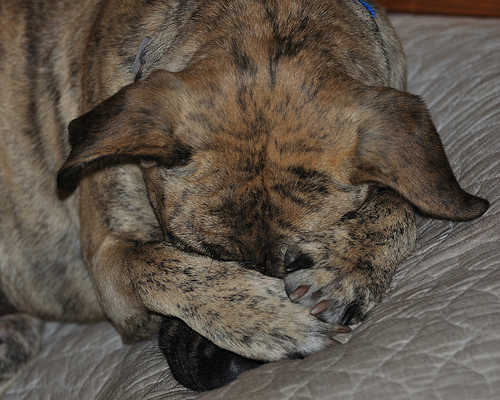As your dog ages, the likelihood he will develop various changes in the function of his body system increases. Some of these will be normal changes to the aging process, others may be indicative of disease. To be more easily alerted to possible signs of disease early in the disease process:
- Monitor food consumption: how much is being eaten? what type of food is being eaten( does your dog leave the hard kibble and only eat the canned) any difficulty eating or swallowing, any vomiting?
- Monitor water consumption: drinking more or less than usual?
- Monitor urination and defecation: color, amount, consistency and frequency of stool: color, amount of urine: any signs of pain while urinating and defecating
- Measure weight every 2 months. Note any changes up or down
- Groom and clip nails, look for any lumps, bumps, or non-healing sores, and abnormal odors, any change in the size of his/her abdomen? increased hair loss?
- Monitor behavior; sleep behavior, sleep patterns, obeying commands, any house soiling, easily startled, anxious when left alone
- Monitor activity and mobility, difficulty with stairs, inability to exercise without tiring quickly, bumping into things, sudden collapses? seizures? any loss of balance? any lameness or change in gait?
- Look for any changes in respiration, panting? sneezing?
Brush your little guy’s teeth regularly..examine the inside of the mouth, any sores?bad breath, swollen gums, yellow, light pink or purplish?
Finally, all these signs indicate the need for a vet appointment. This does not mean that a disease is present. It means you want to get ahead of any problem!!
The goal is always to keep your senior dog happy and as healthy for as long as you can.
LONG LIVE SENIOR DOGS!!!!










